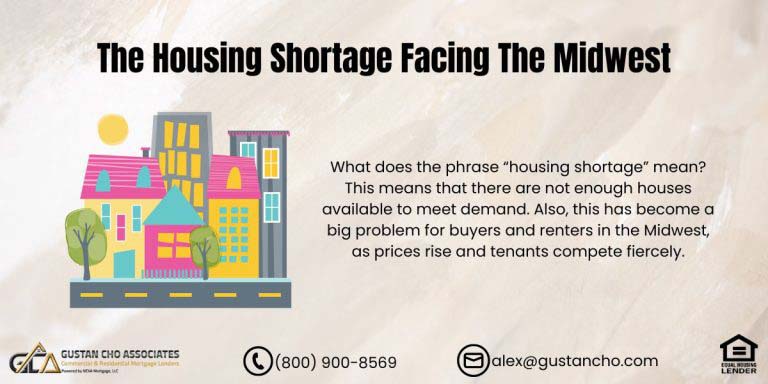This guide covers the role of the property manager and their responsibilities to landlords. The role of the property manager is to oversee and manage the property they are managing. The scope of work and role of the property manager is to make sure the property is safe, tenants are happy, and collect rent on time. The role of the property manager is to tend to the needs of the tenants of the property they are managing. Dale Elenteny, a senior loan officer at Gustan Cho Associates and a property manager of his own properties, says the following about the role of the property manager:
The role of the property manager is to oversee the needs of the tenants they are overseeing. The role of the property manager is to ensure rents from tenants are collected timely. Property managers are responsible for ensuring that every tenant gets the quiet enjoyment they deserve.
This may include electricians, plumbers, snow plowing service, and emergency rapid response teams. Property managers responsibility includes contacting the appropriate vendors when service needs to be done on premises. Whether the responsibility falls on you to choose those vendors or the ultimate decision rests with the property management company you work for, you need to be able to discern which vendors are reliable. You want to get what your boss is paying for, don’t you? In the following paragraphs, we will cover tips on the role of the property manager and finding those reputable vendors and subcontractors.
Weeding Through Customer Reviews
This has been a bone of contention for a number of years now. Altogether, too many companies pay for customer reviews by hiring talented copywriters. It may take some doing. Eventually, you will learn to sort the wheat from the chaff to determine which are authentic and which are nothing more than sales copy. Always beware of language that doesn’t sound like common everyday vernacular, and if it is ‘too’spicy’, it’s probably the product of a paid service.
Unerstand That You Can’t Always Trust a BBB Rating
This is one of the most difficult concepts for property managers to internalize. Just because a company has a great rating on the BBB website doesn’t necessarily mean they are a reputable concern. In fact, one web development team found a company with a greater than 86% negative customer reviews in conjunction with an A+ rating on the BBB site. How can that be? There are several ideas being thrown around and to find what many people believe. Take a few moments to read the amazingly informative Home Advisor reviews. As a property manager, this is something you will want to read and digest before signing up for local contractor referrals.
Frequently Asked Questions About the Role of The Property Manager
Property managers are responsible for ensuring that profit and functionality are maintained in any rented property, including residential, commercial, or industrial. Here are some of the FAQs that surround these specialists and the tasks they perform.
What is the purpose and the role of the property manager?
As the name suggests, the property manager looks after the rented property to guarantee it functions during each business period. Routine tasks are often forward, including but not limited to:
- Accounting: Recording the rent amount collected monthly and keeping the tenant’s database.
- Administration: marketing and letting out the vacant premises to new tenants.
- Communication: receiving and forwarding tenants’ queries while resolving all the complaints and arguments.
- Facilities Maintenance: organizing maintenance services and repairs of the property.
- Compliance: following the jurisdiction’s local, state, and federal laws.
- Finance: Managing the budgets and finances of the property.
Who is Responsible for Hiring the Property Manager?
As a general observation, property managers are employed by the following:
- Landlords: Most residential or commercial rental property owners prefer an automatic subscription service to minimize their interaction with the business.
- Real Estate Investors: Individuals with so many properties under their name that the establishment itself is tedious often need assistance managing the properties.
- Condos and homeowners’ associations (HOAs)—These types of property owners typically need a mediator to control the community’s upkeep and function and avoid conflicts.
Tenant Management: How do Property Managers Approach This?
Selecting tenants is an important property management task that must not be overlooked, as every process must start with a single step.
This usually involves:
- Customizing type of advertisement used to market property rentals to draw in applicants.
- Screening documents are provided by checking the applicant’s credit, employment status, and rental experience.
- Confirming the candidate meets and is acceptable to the criteria the property owner usually puts in place.
- This step assists in finding good-paying tenants who respect and maintain the property well.
What role does a property manager perform as it relates to maintenance?
The property manager takes care of the repairs to the property, which include:
- Performing regular inspections and maintenance check-ups.
- Ordinary repairs as requested by the tenant.
- Major repairs or renovations must be done by a contractor hired and managed by the property manager.
- Their objective is to maintain property value while keeping tenants satisfied.
How do property managers go about the rent collection?
In making rent collection more efficient, property managers will:
- Allow rent payment through an online system.
- Follow up with a policy on rent that has not been paid.
- Send eviction letters should the need arise, but only after proper procedure has been followed.
- For property owners, this ensures consistent cash flow.
What Legal Duties and Role of the Property Manager to Carry Out?
A property manager has to follow the rules and policies about housing, such as:
- Fair Housing Act: Tenant selection must not be biased.
- Local Landlord-Tenant Laws: Tenants must be covered by lease agreements, security deposits, and eviction.
Health and Safety Standards: The property is to be maintained in good, habitable condition.
Not following the legal requirements could lead to fines or court cases against the property manager.
It Is Further Discussed How a Property Manager Can Increase Property Value
Property managers contribute to a property by:
- Tenants must find the property appealing and take care of its upkeep.
- Charging a rational rent based on useful data.
- Executive promotion and retention of tenants to lower occupancy levels.
How Will Property Managers Assess Their Earnings?
Property managers can use the following methods to earn money:
- A Proportion of the Renting Revenue: This is typically 8–12 percent of the monthly rent collected from the property.
- Standard Rates: They charge set amounts for activities like tenant placing.
- Other Fees: For completing fundamental maintenance or other duties.
The Role of the Property Manager Helping with Reports?
Yes, most property managers offer guides that highlight the financial position of the property, and in this case, the property owners include:
- Their own monthly income and expense reports.
- Summaries of the previous year for tax.
- Estimated budgets and plans made to economize.
Which Attributes Should A Property Manager Excel In?
A property manager should always have:
- The ability to interact and communicate effectively with different people.
- An understanding of the legal parameters of real estate and prevailing market conditions.
- The ability to organize and resolve issues.
- Management of finances.
- The ability to operate effective property management software.
The Role of the Property Manager in Executing Evictions?
Yes, property managers are responsible for the entire eviction process by:
- Delivering eviction orders formally as required by law.
- If needed, act on behalf of the property owner in court.
- Some property managers provide services such as working with law enforcement to evict delinquent tenants, although this is not often required.
The Role of the Property Manager with Short-Term Rentals?
Most certainly, many managers focus exclusively on vacation rental properties. Some of their activities may include:
- Management of bookings via online platforms such as Airbnb or VRBO.
- Scheduling of cleaning services will take place between bookings.
- Adhering to the prescribed short-rental property regulations of the area.
- Property managers play a vital role in protecting a rental home’s integrity and operational efficiency while freeing the owner from tedious self-management.
If you are a property owner or an investor, it is best to engage a professional property manager, as it can free you up, de-stress you, and make you more money.
The Role of the Property Manager is to Network with Other Property Management Companies
Even if you like what you’ve found so far when researching vendors, you might want to network with other property managers. This is probably the most reliable way to find vendors and contractors who provide the services they claim to offer and have better than average customer service. You can always contact other property management teams in your area or attend regional conferences to set up a network. It really does pay to share your experiences. This is because of all the scams (like the one referenced above) that don’t perform as promised. Remember, as a property manager, you really have two bosses! One would be the company you work for. The other would be the tenants who rent those properties. The role of the property manager is often the liaison between the two and when an issue arises. Both the customer and the property management company expect a timely response. For this reason, it is vital that you find reliable vendors and build a working relationship with them. Just remember: beware of scams! The role of the property manager is also to complete and sign a verification of rent from tenants who are vacating the property to purchase homes.
This guide on the role of the property manager and responsibilities to landlords was updated on January 16th, 2025.









